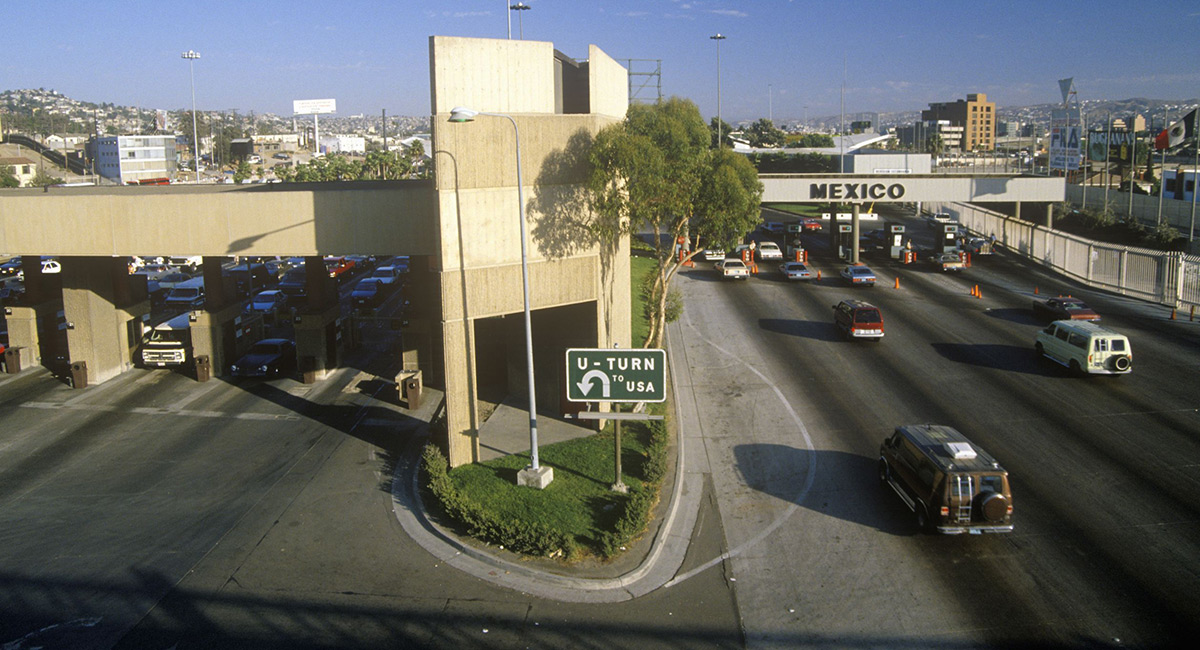A remarkable consequence of international trade is that all participants win, but only when trade is free and open. American energy companies are pressing U.S. officials to follow that principle at the start of a new chapter in America’s trade relationship with Mexico.
The U.S.-Mexico-Canada trade agreement (USMCA), which entered into force July 1, made more than cosmetic changes to its predecessor, the North American Free Trade Agreement (NAFTA). It corrected imbalances and strengthened obligations among all three signatories, clearing the path for more and fairer trade.
The oil and gas industry is among the most commercially consequential sectors in U.S.-Mexico trade. Supplies of crude oil are abundant in both countries. In broadest terms, the U.S. imports Mexican oil, refines it, and sends back an array of petrochemical products as well as natural gas. What is more important, each country specializes according to its comparative advantages and plays its own role in the global supply chain.
Unfortunately, Mexico, long locked in co-dependence with its state-owned oil company PEMEX, is trying to block U.S. oil and gas companies’ access to domestic markets. Market access is key to mutually beneficial trade. Strengthening the rights of cross-border investors was one of the most important accomplishments of the renegotiated trade pact, but U.S. oil and gas companies say Mexico is trying to sidestep USMCA’s agreed-to terms with regulatory abuse and overt discrimination.
In a June letter timed to coincide with Mexican President Antonio Manuel Lopez-Obrador’s visit to the White House, American Petroleum Institute (API) President Mike Sommers wrote to Secretary of State Mike Pompeo and other senior administration officials urging them, essentially, to nip protectionism in the bud.
PEMEX enjoys a de facto monopoly in the Mexican oil and gas sector and the government in power wants to keep it that way. PEMEX has generated enough revenue in good times that Mexican politicians justify protecting it when prices sink, as they have done dramatically in recent years. U.S. producers say that Mexico is blocking them from building new storage infrastructure, reducing the presence of U.S.-branded filling stations, and applying double standards in enforcing fuel quality regulations, all to restrict U.S. investments there and keep PEMEX in the driver’s seat.
Specifically, API contends that Mexico’s regulatory body, the Comisión Reguladora de Energía (CRE), is exploiting its bureaucratic powers to delay transfers of filling station ownership over technical issues. In addition, waivers of regulatory standards concerning sulfur levels in diesel fuel and vapor pressure for summer gasoline are granted routinely to PEMEX, but not to U.S. companies. Likewise, the USMCA’ Compulsory Stock Obligation rule, which requires a minimum fuels storage capacity of five days, is being interpreted to make it tougher for U.S. companies to build new storage tanks, thereby locking in PEMEX’s control of that industry activity. Mexican government agencies are slowing or even halting storage projects now underway, such as a liquefied natural gas (LNG) terminal. API also warns that Mexico is extending a regulation to hamper foreign companies’ downstream pricing flexibility.
Such issues are technical but very important to a mutually beneficially trade relationship between the U.S., Canada and Mexico. Such non-tariff barriers were among the reasons for revisiting NAFTA. When Mexico seeks to avoid obligations to let U.S. firms compete fully, it casts a pall on the good faith that led to the landmark achievement the USMCA represents and undermines U.S.-Mexican trade ties more broadly going forward.
Mexico’s suspected attempts to skirt USMCA’s investor rights also highlight the persistent waste and inefficiency that Mexico’s citizens are forced to endure because of PEMEX’s monopoly. U.S. firms have insisted that they can weather COVID 19’s shocks without government bailouts. In contrast, PEMEX reassures nervous investors by touting the roughly $6 billion in subsidies it has received from the Mexican government. Such lavish state support, of course, simply perpetuates resource waste and economic inefficiency. In the face of first-quarter COVID-related losses that top $20 billion, PEMEX agreed to cut capital expenditures by 30 percent. One possible place to start is to make it easier for other players to build storage capacity and operate retail filling stations.
Whatever one’s view of NAFTA or USMCA, a reversal of course is unlikely. President Trump’s counterproductive slapping of tariffs on Canadian aluminum notwithstanding, USMCA binds the North American continent deeply and strongly. Each country is a partner in making sure that USMCA benefits all three signatories; doing so requires each country to adhere to the pact’s provisions. As veteran trade analyst Gary Clyde Hufbauer pointed out recently, the stakes are high. “Energy flows to our northern and southern neighbors support 12 million U.S. jobs and account for well over $1 trillion in trade.”
API’s request affirms an important American sector’s commitment to USMCA’s success. The matters the organization has raised could be worth pursuing through USMCA’s investor-state dispute settlement (ISDS) system.
American energy companies’ concerns are among the many challenges the global marketplace faces in uncertain times; resolving them presents an opportunity to strengthen compliance with rules-based trade and not undermine it.











